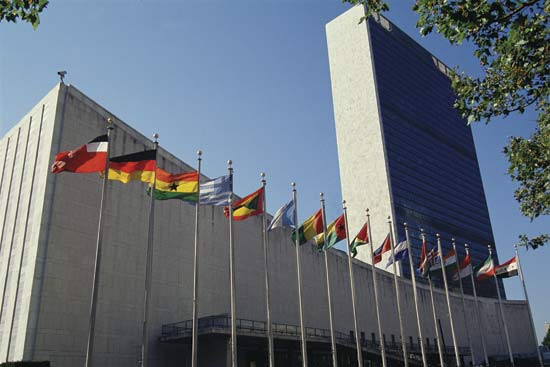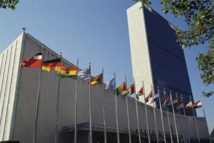But in April, forces of Syrian President Bashar al-Assad, supported by Russian air power, initiated a massive campaign against rebels in Hama and Idlib, the last major opposition strongholds in Syria.
Since then, 37 schools have reportedly been affected by an intensified offensive around Idlib, UN relief chief Mark Lowcock told the UN Security Council. There have been 26 attacks on healthcare facilities in north-western Syria in the same timeframe, according to the World Health Organization (WHO).
"It is appalling that these sites were hit in the first place. But hitting a facility whose coordinates were shared as part of the UN's de-confliction system is simply intolerable," Lowcock said.
"A number of partners now feel that supplying geographical coordinates to be given to the warring parties effectively paints a target on their backs. Some have drawn the conclusion that hospital bombings are a deliberate tactic aimed at terrorizing people."
This latest escalation in war-torn Syria has displaced thousands of people, and came despite a truce deal reached in September 2018 between Russian and Turkey, a supporter of some rebel groups, to establish a demilitarized buffer zone in the Idlib enclave.
On Tuesday, Syrian rebels targeted government positions in the northern countryside of Hama with suicide bombings, prompting heavy airstrikes on areas under the control of opposition fighters in north-western Syria, according to The Britain-based Syrian Observatory for Human Rights.
The Observatory, which has been documenting violence in Syria since 2011, has put the civilian death toll in Idlib and Hama since the end of April at 443, including 108 children.
The escalation has also displaced more than 300,000 people, the watchdog said.
Lowcock’s remarks came after UN Secretary General Antonio Guterres appealed to Russia and Turkey as signatories to the de-escalation agreement to "stabilize the situation without delay".
Since then, 37 schools have reportedly been affected by an intensified offensive around Idlib, UN relief chief Mark Lowcock told the UN Security Council. There have been 26 attacks on healthcare facilities in north-western Syria in the same timeframe, according to the World Health Organization (WHO).
"It is appalling that these sites were hit in the first place. But hitting a facility whose coordinates were shared as part of the UN's de-confliction system is simply intolerable," Lowcock said.
"A number of partners now feel that supplying geographical coordinates to be given to the warring parties effectively paints a target on their backs. Some have drawn the conclusion that hospital bombings are a deliberate tactic aimed at terrorizing people."
This latest escalation in war-torn Syria has displaced thousands of people, and came despite a truce deal reached in September 2018 between Russian and Turkey, a supporter of some rebel groups, to establish a demilitarized buffer zone in the Idlib enclave.
On Tuesday, Syrian rebels targeted government positions in the northern countryside of Hama with suicide bombings, prompting heavy airstrikes on areas under the control of opposition fighters in north-western Syria, according to The Britain-based Syrian Observatory for Human Rights.
The Observatory, which has been documenting violence in Syria since 2011, has put the civilian death toll in Idlib and Hama since the end of April at 443, including 108 children.
The escalation has also displaced more than 300,000 people, the watchdog said.
Lowcock’s remarks came after UN Secretary General Antonio Guterres appealed to Russia and Turkey as signatories to the de-escalation agreement to "stabilize the situation without delay".









 Home
Home Politics
Politics











